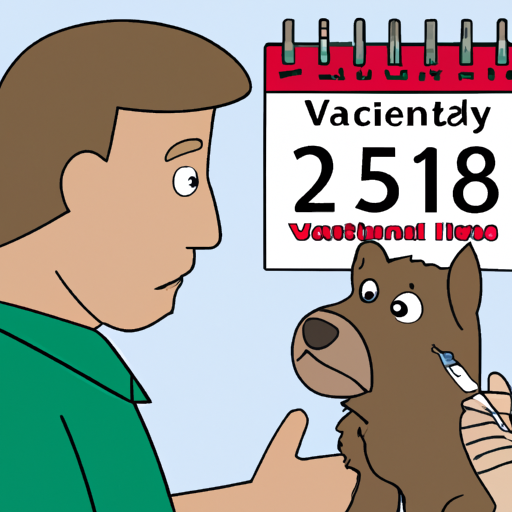“`markdown
When Should Dogs Get Shots
Understanding the Importance of Vaccinations
As a caregiver to your furry friend, you understand the importance of keeping them healthy. Vaccinations play a vital role in ensuring your dog is protected from various diseases. It’s not just about following the legal obligations – it’s about cherishing the bond you share with your pet and ensuring they lead a long, healthy life.
Knowing the Schedule
To properly care for your pup, you need to be aware of the recommended vaccination schedule:
- 6-8 weeks: Distemper, Parvovirus, and Hepatitis
- 10-12 weeks: DHPP (vaccines for distemper, adenovirus, parainfluenza, and parvovirus)
- 16-18 weeks: DHPP, rabies
- 12-16 months: Rabies, DHPP
- Every 1-2 years: DHPP
- Every 1-3 years: Rabies
Remember, every dog is unique. Consult with your vet to determine the best schedule for your pet.
Risk Factors to Consider
Not all dogs require the same set of shots. The following factors influence the vaccinations your dog may need:
- Age: Puppies need a different vaccination schedule than adult dogs.
- Environment: Dogs in crowded environments like shelters or boarding kennels may require additional vaccinations.
- Lifestyle: If your dog frequently interacts with other dogs, they may need extra protection.
- Travel habits: Traveling, especially to areas known for certain diseases, can influence the vaccines needed.
Understanding the Side Effects
While vaccines are crucial for your dog’s health, they can also lead to side effects. It’s essential to monitor your pet after every vaccination. Common reactions include:
- Mild fever
- Decreased appetite and activity
- Swelling at the vaccination site
In rare cases, dogs may experience severe reactions. If you notice anything unusual, contact your vet immediately.
FAQs
When should puppies get their first shots?
Puppies should get their first shots between 6-8 weeks of age.
How often should dogs get rabies shots?
In most areas, dogs should get a rabies shot every 1-3 years.
What if my dog misses a vaccine?
If your dog misses a vaccine, consult with your vet. They will help you adjust the vaccination schedule.
Are there any risks involved in vaccinations?
Vaccinations can cause minor side effects. In rare cases, they can cause severe allergic reactions.
Should older dogs continue to get vaccinated?
Yes, older dogs should continue to get vaccinated. However, the type and frequency of vaccines may change.
Caring for your dog involves many factors, and vaccinations are a crucial part. Remember, when in doubt, always consult with your trusted vet.
“`



